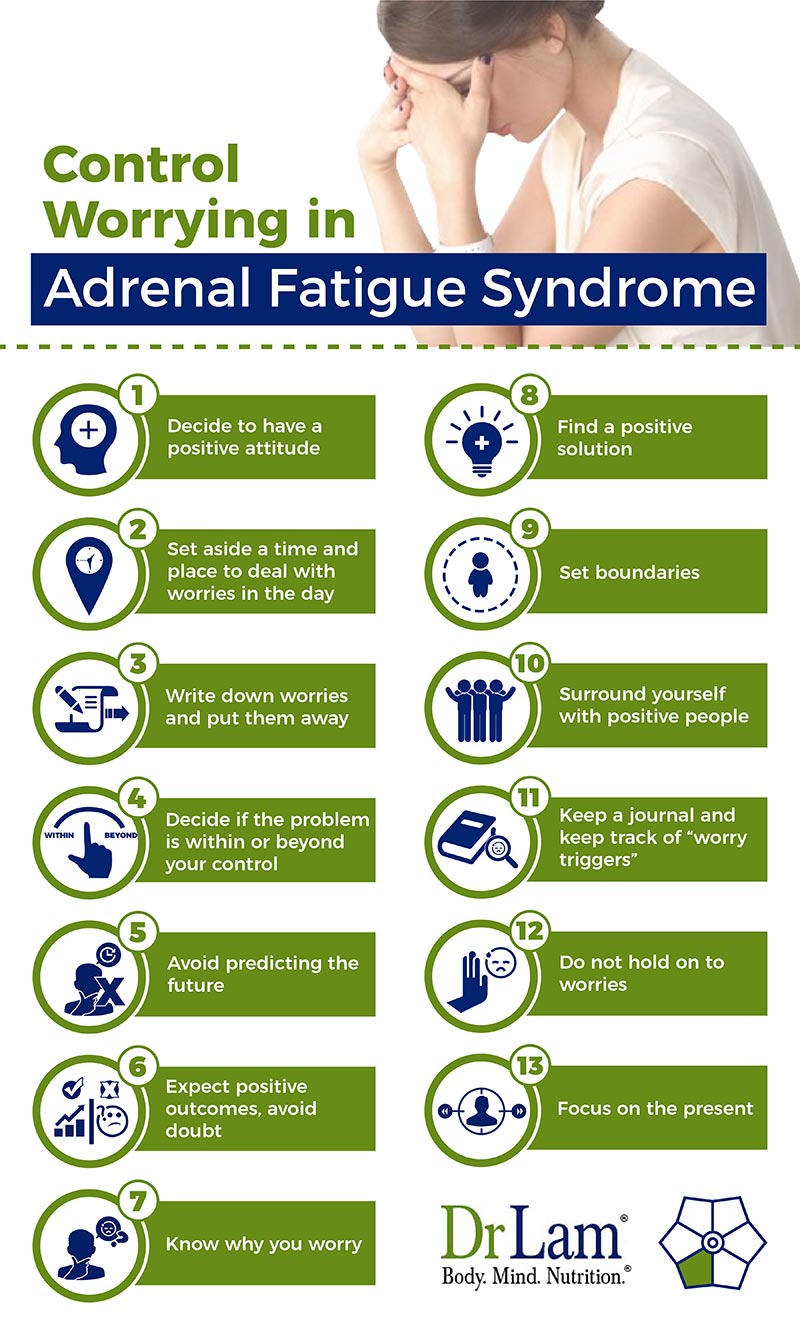Worry can have a positive or negative effect. It can help motivate an individual to accomplish tasks or solve problems. Obsessive or excessive worrying may lead to anxiety, which can impede daily life and health. How an individual handles worry is a personal attitude about how we cope.
 There are methods that can prevent excessive worry from gaining control of our minds. Here are some techniques to try:
There are methods that can prevent excessive worry from gaining control of our minds. Here are some techniques to try:
Assume a positive mind set, learn relaxation techniques, and be real with your emotions. Anxiety can be controlled by altering how we respond to worry and stress.

The biggest issue with worrying has to do with how the nervous system responds to anxiety. In a situation where someone is experiencing excessive worry or anxiety, the body triggers the fight and flight response which in turn releases hormones like cortisol and adrenaline into the body. This is just one characteristic of what is known as the NeuroEndoMetabolic (NEM) Stress Response. The NEM stress response is descriptive of the pathways through which our bodies process and react to stressors. Controlled mainly the the hypothalamic-pituitary-adrenal (HPA) axis, the stress response ensures that, when any perceived external threat is present, the body has the necessary tools to respond appropriately.
There are several physical health issues related to how the body processes excessive worrying and stress. These encompass a wide range of severity and include everything from heart attacks, digestive disorders, immune system suppression, and more.
 It can’t be impressed upon the reader enough that it is wise to make changes if you’re experiencing excessive worry. The tips listed above are a great start to any campaign to get your emotions under control but it needs to be mentioned that there are neurological disorders that may require clinical attention.
It can’t be impressed upon the reader enough that it is wise to make changes if you’re experiencing excessive worry. The tips listed above are a great start to any campaign to get your emotions under control but it needs to be mentioned that there are neurological disorders that may require clinical attention.
During the process of the NEM Stress Response, the adrenal glands are called upon to effectively work in excess of their normal capacity. This is prudent to take note of because when someone worries excessively, their adrenal glands become exhausted and they are likely to experience Adrenal Fatigue Syndrome (AFS).
The key aspects of stress management that have been listed in this article can help to reduce the burden placed upon the adrenal system. When you limit the period of time which your body is exposed to harsh, when produced in excess, hormones, you are then able to move towards AFS recovery.
We all have issues that are beyond our control. Sometimes it may seem that one of those is excessive worrying and anxiety. While you can’t control everything that happens in your life, you can work to control how you respond to it. Negative people, practices, and a lack of attention to your own well-being can have disastrous effects on the body which eventually culminate in a dysregulated NEM Stress Response system and adrenal fatigue. The good news is that there are practical steps that we can all take to choose something positive and healing when confronted with the options of worry and anxiety.

